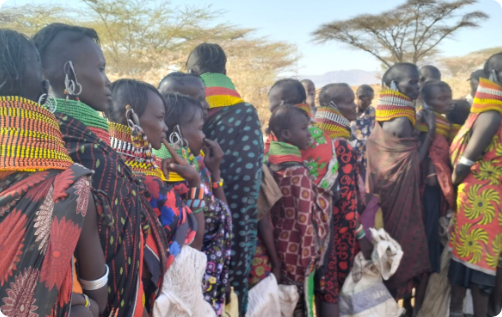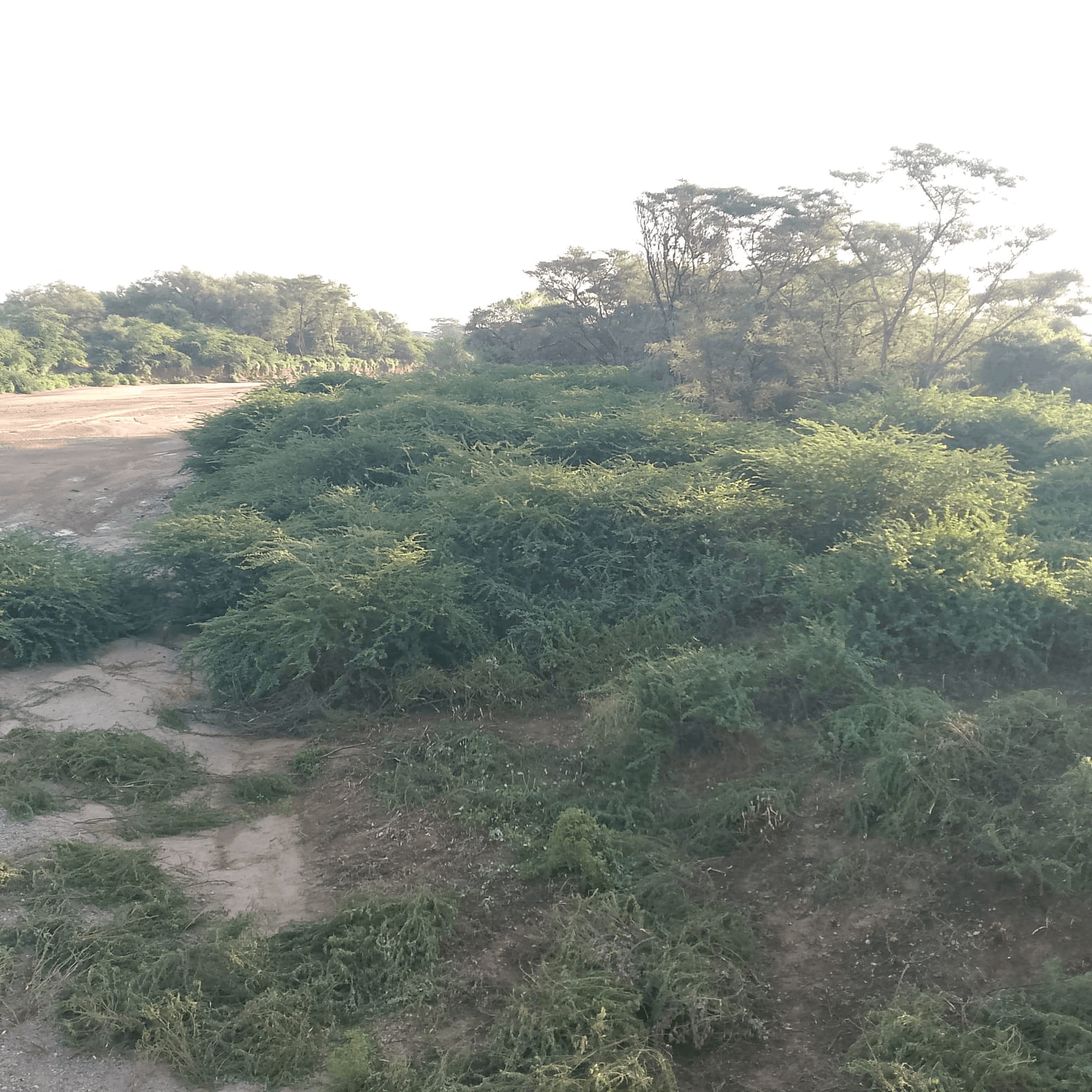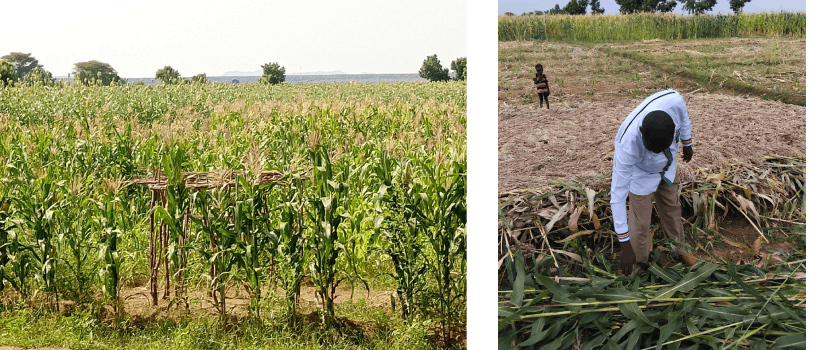Our History
We've come from far
ASCODE began as community-based organisation (CBO) by the name Sustainable Transformation and Empowerment Program (STEP). As a CBO, which was founded and registered in 2001, it operated in Samburu county, with its activities concentrated in northern Samburu. In 2022 the organisation applied for a change of name and registration as a national organisation. Consequently, it was registered in 2023 as a Non-Governmental Organization (NGO), with its operations covering Isiolo, Marsabit, Turkana, and Samburu counties. Currently, our operations are in Samburu county, Turkana East and Turkana West sub-counties. Our main focus is on education, climate change and environmental protection.

What The Future
Should Look Like
Our Vision
ASCODE envisions a prosperous northern Kenya that is free from the indignity of poverty, a region where citizens are empowered to engage in governance and development processes, live in peace, and responsibly contribute to the development of their country, communities and families.
Why We Exist
Our Mission
ASCODE exists to act as a catalyst for community development by empowering communities to address challenges that affect them, recognizing existing opportunities and coming up with solutions to improve their well-being.
Our Principles and
Values
We touch lives
Our values drive and underpin the development and implementation of our programmes at national, county, ward and village levels.
- Stewardship
- Partnership
- Empowerment
- Dignity
Our Goals
Goal 1– Building Community Resilience and Climate Adaptation
Working with communities and partners to protect the environment through agro-forestry, conservation and climate-smart agriculture. We build community resilience to proactively reduce vulnerabilities caused by climate change and destruction of the environment. Our focus on community empowerment aims to save lives and safeguard livelihoods in the face of climate change.
Goal 2 – Economic Empowerment
Empowering women, men and youth, individually and collectively, to influence national and county development and transformational agenda; strengthening private sector through value chain development and enabling communities secure their land in order to benefit from natural resources found in their areas.
Goal 3- Fostering Good Governance
Strengthening institutions and enabling communities to engage in governance and development processes to influence equitable distribution of resources in the counties in which we operate.
Goal 4 – Enhancing Access to Education and Protection
Working with relevant institutions to ensure children’s rights are protected and secured, and enabling children who are excluded from education and learning to access quality education.
Goal 5 – Fostering peaceful co-existence of communities
Working with institutions that build and sustain peace.
Goal 6. Strengthening Public Health and Sanitation
Enabling communities to access clean and safe drinking water for livestock and domestic use.
Our Programmes/Result Pillars
We touch lives
We work with government, other civil society organisations and private sector to change the
narrative of pastoralist areas of Kenya from that of poverty, helplessness, disease, hunger and
conflict to that of peace, stability and prosperity. Our passion for the transformation of
northern
Kenya is based on the belief that the region has huge natural and human resources that can make
it
be an ocean of prosperity for its people.
Our thematic or result areas include the following:


a) Climate Change Adaptation
ASCODE works with communities and partners to design and implement projects that address the challenges of adverse effects of climate change in northen Kenya. In the face of ongoing climate change, biodiversity loss, and escalating food insecurity, we sensitise communities on the importance of conservation and protection of the environment. We promote rangelands protection and advise communities on the importance of sustainable agricultural practices that are adaptable to climate change. By building the capacity of communities on the importance of environmental protection, communities are able to optimize land use and enhance its ecological and economic value.

b) Food Security and Livelihoods
ASCODE focuses on building and strengthening community institutions to act as a voice and
catalyst for collective action. To empower people economically, we support the formation and
strengthening of existing community institutions, namely livestock cooperatives and association,
fishers’ associations/cooperatives and community conservancies that protect forests and
wildlife.
ASCODE works with partners to strengthen the capacity of pastoralists and agro-pastoralists to
benefit from extractives (oil and gas, wind, geothermal and minerals). We will always endevaour
to
organise communties to benefit from nayural resources that should be exploited in an
environmentally friendly manner through formation of mining cooperatives, associations and
entering
into comprehensive community development agreements with natural resources investors, in line
with exsiting international best practice and Kenya legislation on revenue sharing.

c) Humanitarian Assistance
Together with government and like-minded organisations, we respond to humanitarian emergencies when they occur, support communities to enhance their capacities to cope, adapt and build their resilience to save lives and safeguard livelihoods.
d) Governance and Citizens Engagement
We work with citizens to strengthen public participation in socio-economic and governance processes in order to contribute and influence important decisions made by duty bearers, mainly in budgeting and allocation of resources. We build the capacity of citizens and empower them through skills transfer, mindset and attitudinal change. We endeavor to enhance social accountability mechanisms to enable citizens hold the governments and private sector accountable.
e) Education and Child Protection
ASCODE works with government, communities and like-minded institutions to enable children who are excluded from education because of poverty, gender, disability or other factors to access quality education.
f) Peacebuilding and Conflict Management
ASCODE recognises that violent conflict has been a major cause of underdevelopment and suffering in northern Kenya. Without peace, all our development efforts will be in vain. We aim to forge collaborative partnerships for peace with government, non-state actors and community institutions in order to inculcate a culture of shared responsibility for peace.
g) Public Health and Sanitation
ASCODE works with partners to provide access to clean water to pastoral communities. We build water points in partnership with communities and governments, and we work to ensure that water points are locally managed and maintained. We also emphasize behavior change interventions to keep water safe during collection, transportation, storage and use.
Our Approach
We focus on building and improving the well-being of vulnerable communities and people living in
poverty in the Arid and Semi-Arid Lands (ASALs) of Kenya. We forge collaborative and strategic
partnerships with donors, international organisations, community institutions, research institutions,
women and youth organisations, government, private businesses, artists. To effectively address the
causes of poverty, the organisation fosters long-term relationships and implement programmes that
aim to create sustainable impact in the lives of people living in poverty.
All our programmes are aligned to international, national and county development frameworks
namely: SDGs, Africa Agenda 2063, Kenya Vision 2030 and County Integrated Development Plans
(CIDPs).
How We Create Impact
As a movement for socio-economic transformation, ASCODE recognizes the importance of quality programming. We will always implement programmes that are cost-effective and enable communities to address the root causes of poverty. Our programmes ensure there is cohesive, strategic direction and collective action for achievement of visible and sustainable socio-economic transformation at county and ward/village level. To enhance programme effectiveness, integrated programmes, multi-sectoral programmes are designed to address sector-specific challenges, by concentrating resources in targeted areas, in order to create joint impact.
How We Measure our Impact
As part of strengthening accountability to our partners, ASCODE collaboratively undertakes regular reviews and evaluations of its programs. The outcome of reviews and evaluations on outputs and impact of our programs, in terms of measuring our impact and showcasing our achievements and challenges, are transparently communicated to our partners.
Our Team
Currently, we have a board of directors consisting of seven people led by a Chairman. We also have our executive team which consists of a Executive Director and several staff who are specialized in different fields.